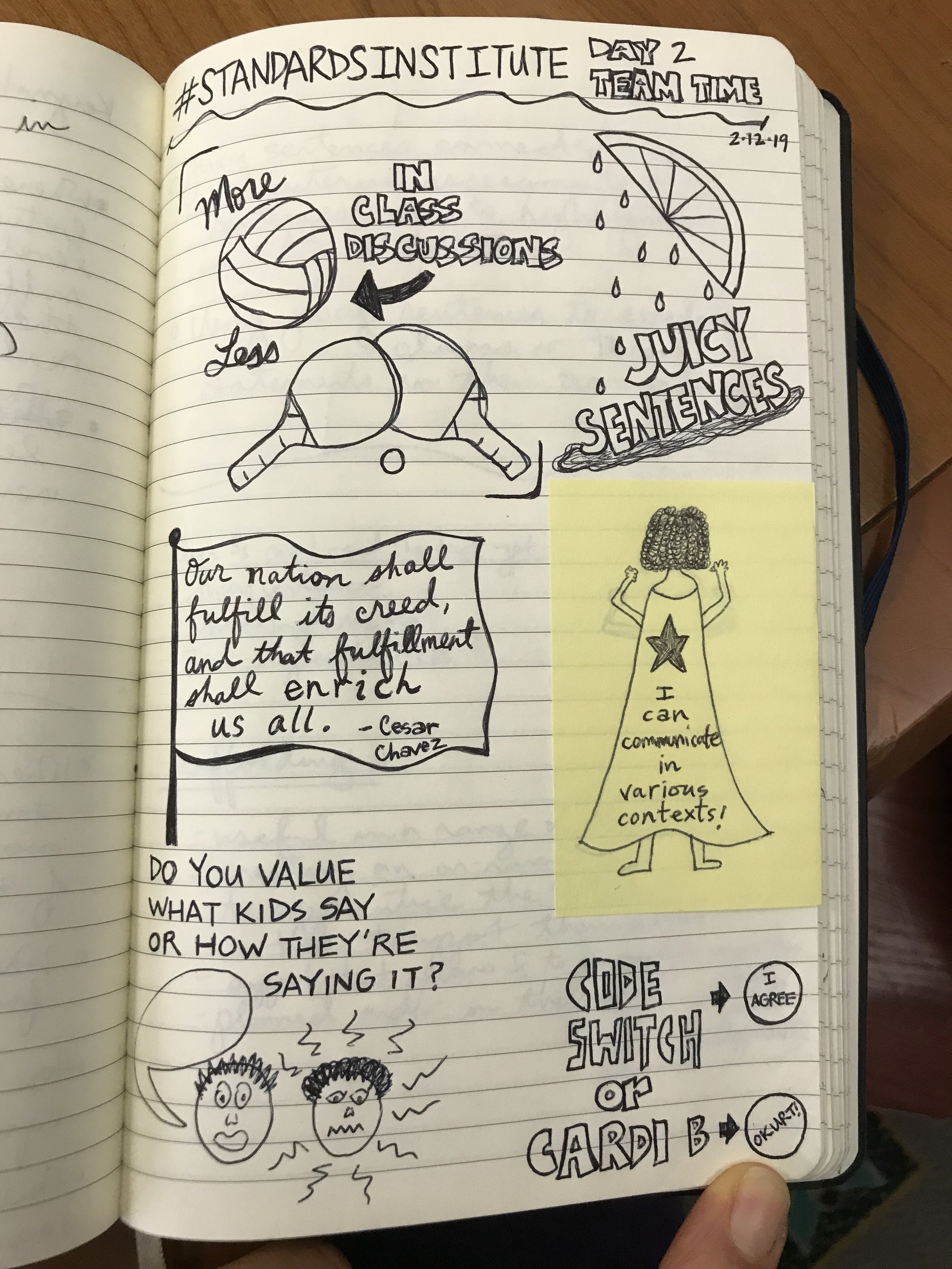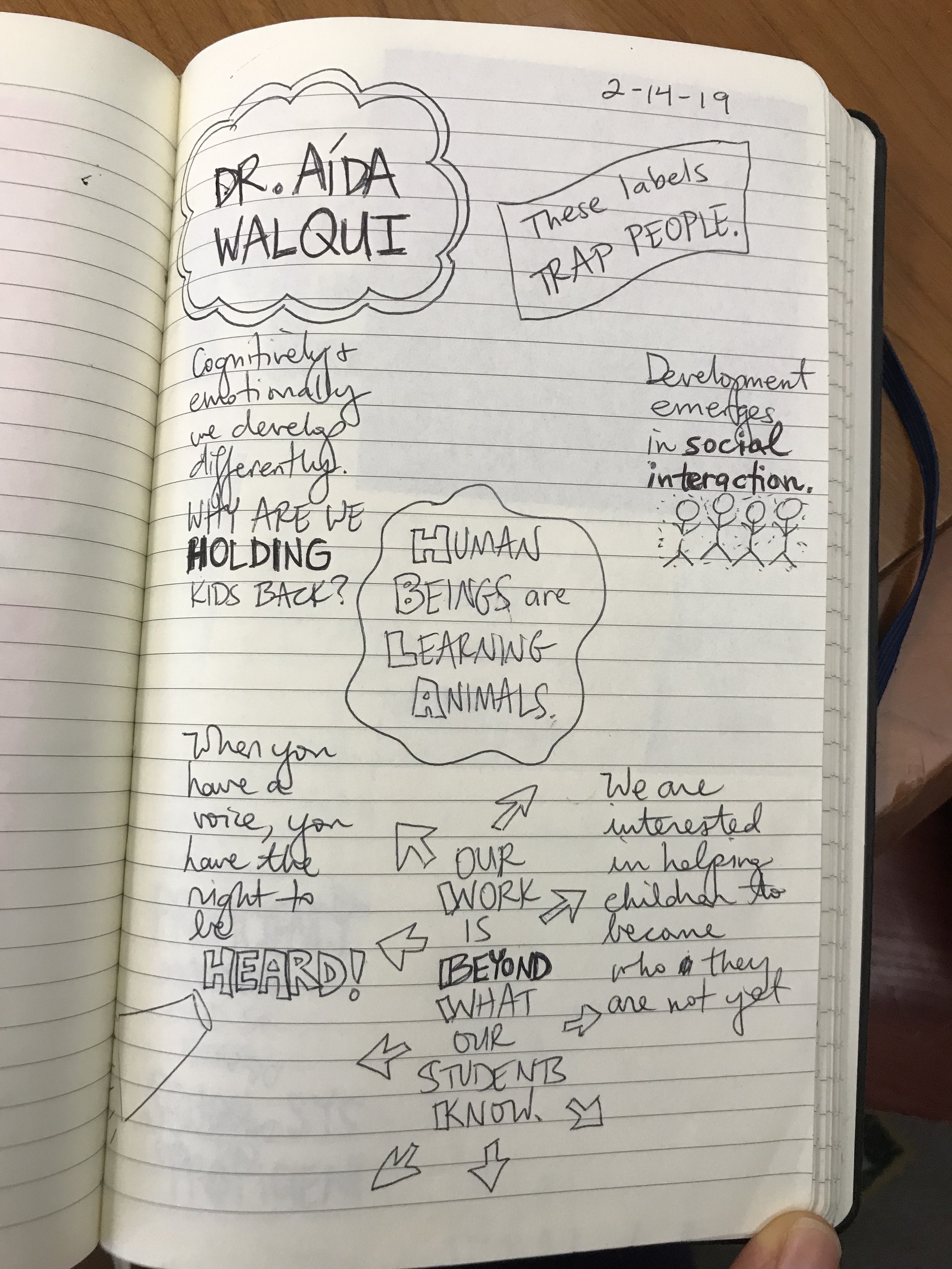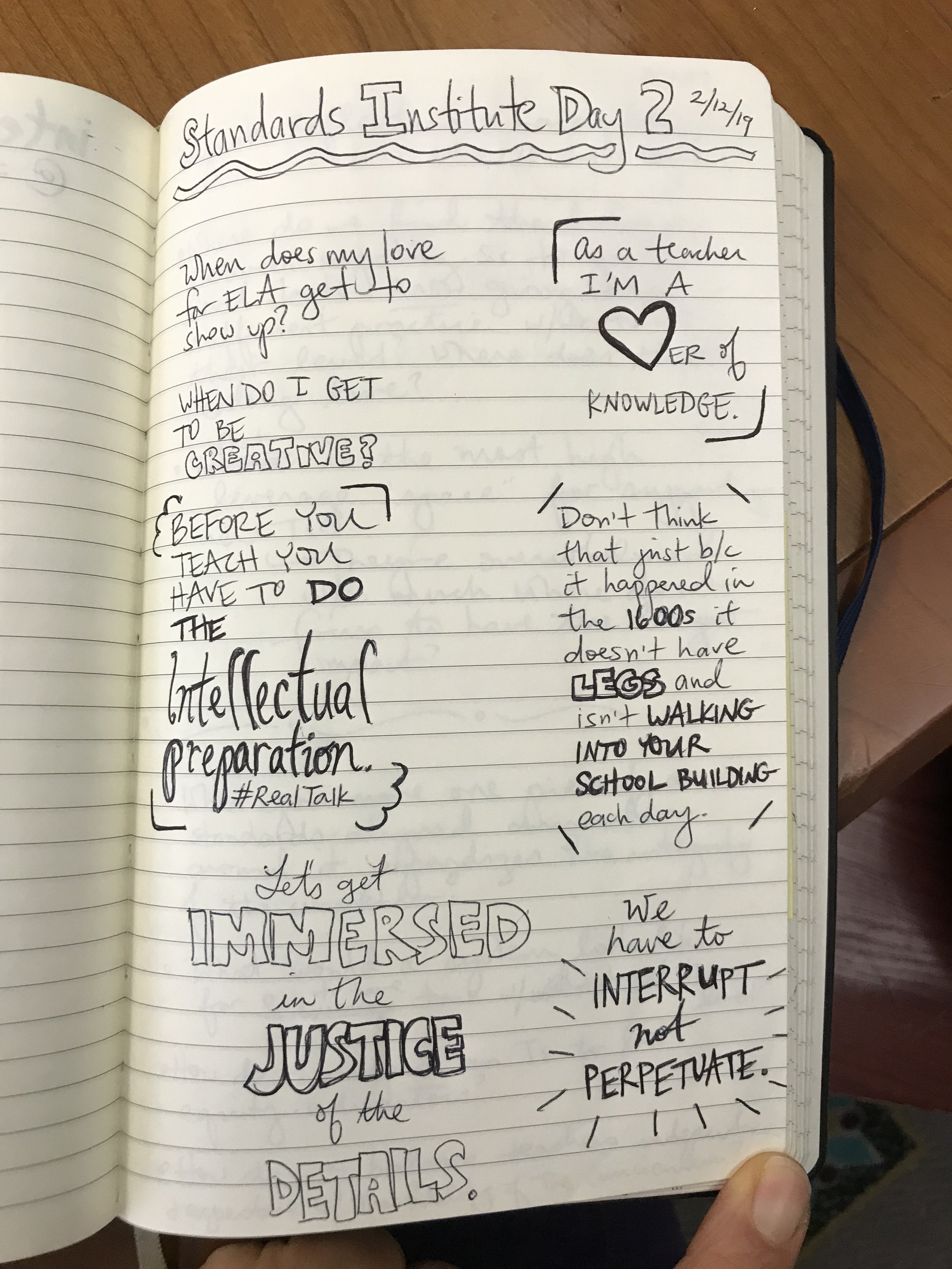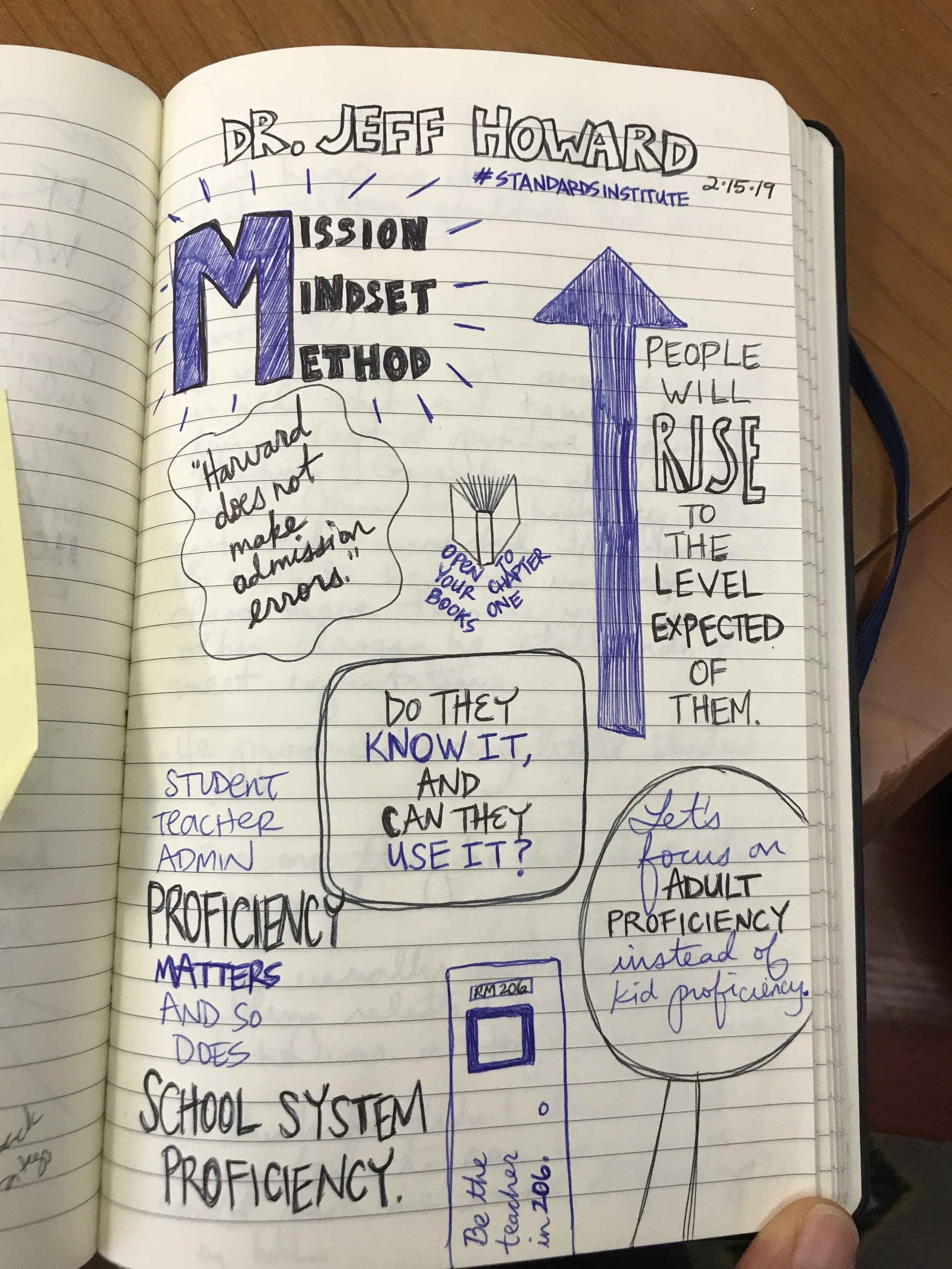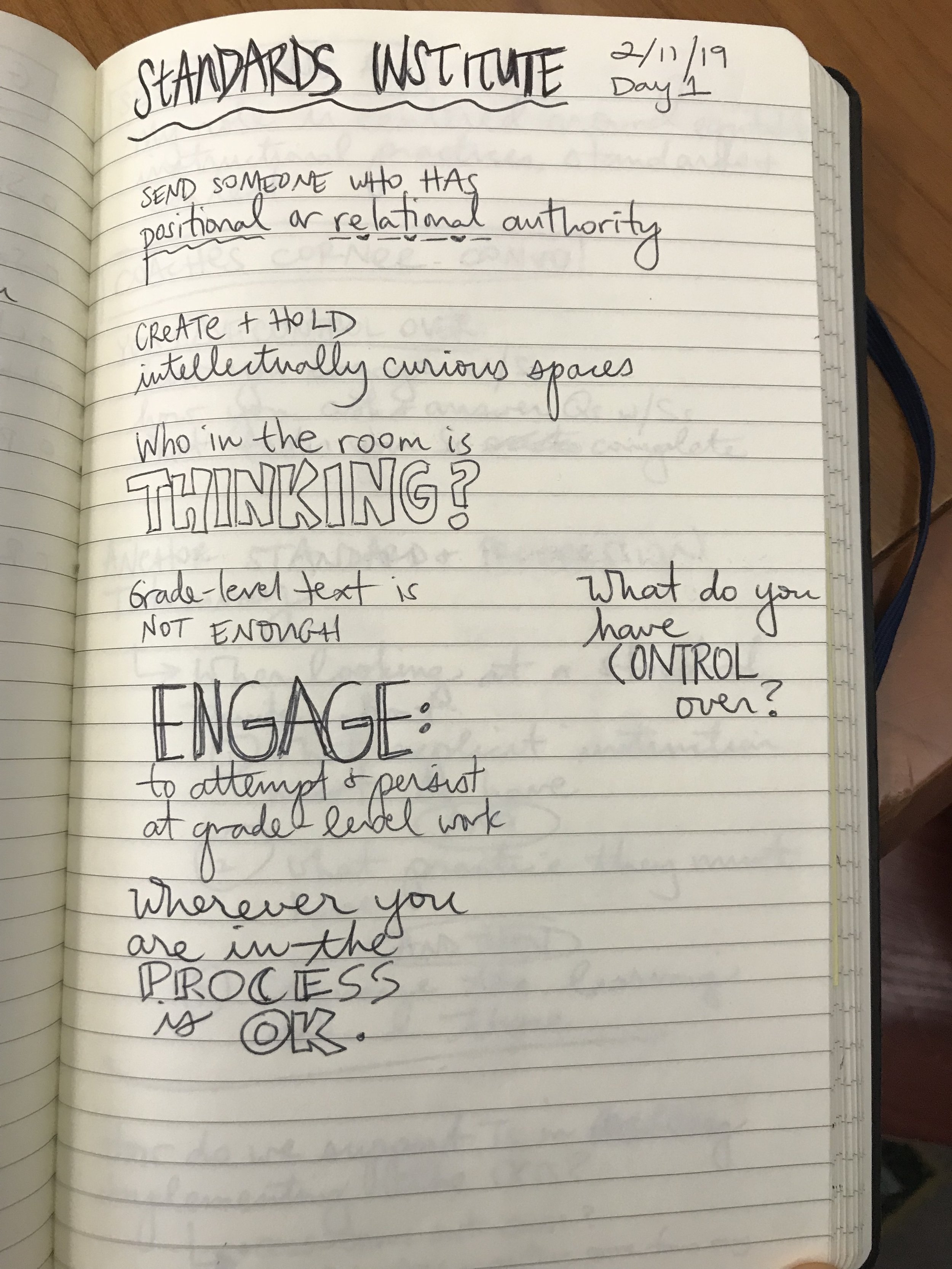Lessons Learned from the Standards Institute
Last month I had the opportunity to attend the Standards Institute, a five-day immersion into the Common Core State Standards (CCSS) with more than 1,000 educators from across the country. The conference was phenomenal and I learned a ton from our small group facilitators, fellow educators and keynote speakers such as the inspiring Dr. Aída Walqui. I was grateful for the experience and I also recognized that since the CCSS were released in June of 2010, I have only had two opportunities to be professionally trained in the standards. Believe it or not, neither of them was through my school or district! Both were through outside organizations I was connected to. I’ve done work with my school site about the CCSS but have never experienced the standards in depth like I did at the Standards Institute or the Achieve the Core PD I attended a few years back.
How can we expect teachers to implement instruction that supports students in meeting the standards if we don’t train them?
Teachers need multiple opportunities to develop their understanding of the CCSS and learn specific strategies for implementation. More often than not, in our profession, we expect teachers to create major shifts in their instruction without supporting them to do so.
In an effort to share the knowledge, here are a few lessons learned from my time at Standards Institute:
One more time for the folks in the back! Teachers need multiple opportunities to develop their understanding of the CCSS and learn specific strategies for implementation.
When you can only send a certain number of folks to a professional conference or experience, send people who have positional and/or relational authority.
When looking at a standard, think about:
What explicit instruction students must have and
What practice they must have, and then
Sequence the learning around these ideas.
Before we teach, we have to do the intellectual preparation.
As teachers we are lovers of knowledge and must do the work to prepare students to make meaning of that knowledge. We can’t show up unprepared.
Our students will rise to the level that’s expected of them.
We have to show our students that we care about them, hold all of them to high expectations, and provide instruction that supports them to meet those expectations.
There are specific instructional strategies that can support students of all reading levels in accessing grade-level complex texts.
Juicy Sentences
Text-based Scaffolded Questions
Sequenced Text Sets
Fluency Practice (teacher model, choral reading, repeated readings, shared reading, readers theater)
Structure Puzzles
Academic Text-Based Conversations with Peers
Interactive Word Walls
Learn more about these by checking out some of these resources.
